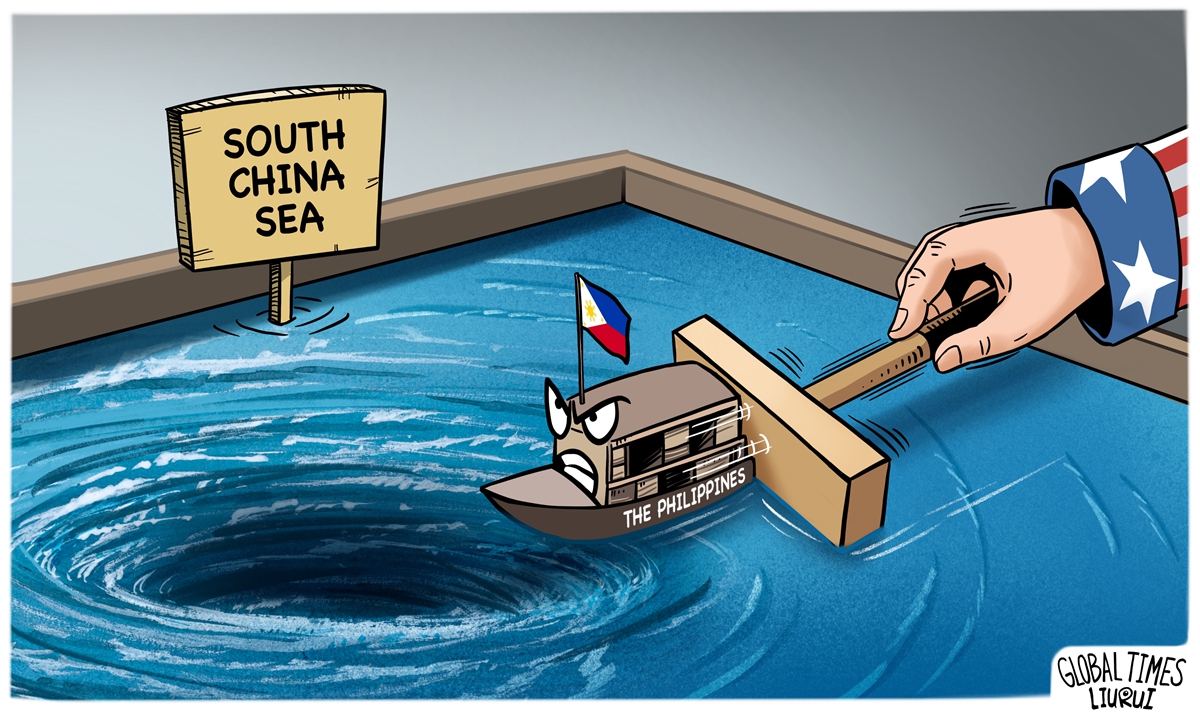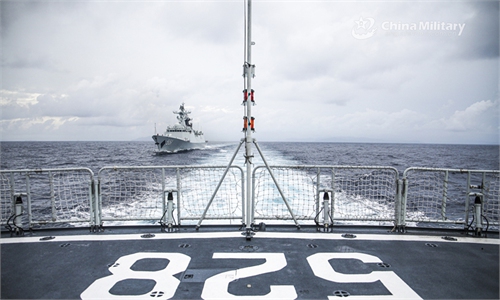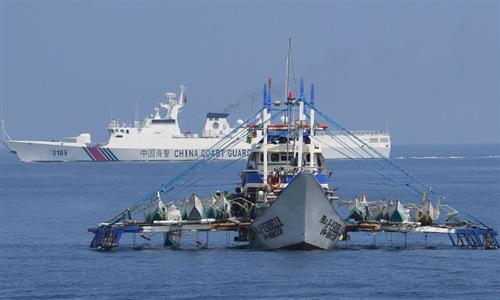
Illustration: Liu Rui/GT
Recently, the Philippines has consistently been trying to strengthen military cooperation with the US and escalate South China Sea disputes with China. The Philippines conducted joint air and sea patrols with the US in the South China Sea from November 21 to 23. This is against the backdrop of President Ferdinand Marcos Jr's statement during his visit to Hawaii that the Philippines had taken the initiative to approach other claimant countries to make their own Code of Conduct (COC) in the South China Sea and "hopefully, this will grow further into the other ASEAN countries."
In terms of the Philippines' policy toward China, the emphasis for Manila is on strengthening economic and trade ties for its own benefit. The Philippines, as a medium-sized developing country, faces daunting development tasks ahead. The significant economic strength and vast market of China is crucial for the country's economic and social development.
The key and challenging aspect of the Philippines' policy toward China lies in how to handle the South China Sea issue in bilateral relations. Driven by factors such as nationalism at home and instigations by the US, unlike the former Rodrigo Duterte administration, the current government in Manila not only values and relies more on its alliance with the US, continuously deepening military cooperation with Washington, but also adopts a more assertive stance on the South China Sea issue, frequently and actively exacerbating the issue.
In the Philippines' policy toward China, especially on the South China Sea issue, the US is an important factor that cannot be ignored. The Biden administration views China as the only country capable of challenging US hegemony. The top priority of the US' South China Sea policy is to disrupt the region and escalate it into an international issue, as this could provide opportunities for US intervention, with the fundamental goal of consolidating the US' position in the South China Sea and the Asia-Pacific region.
For Manila, aligning with Washington on the South China Sea policy and the Indo-Pacific Strategy helps gain attention and support from the US, thereby strengthening the US-Philippines alliance and enhancing domestic support for the government. The recent actions by the Philippines in the South China Sea are in consistent with this logic, but this approach comes with challenges.
First, there is an inherent contradiction between the China policy of the Marcos Jr administration and its approach to the South China Sea issue. The South China Sea issue is an unavoidable and a crucial aspect of China-Philippines relations, perhaps even the most sensitive and challenging issue between the two nations. Manila doesn't want to screw up its relations with China, particularly in terms of economic and trade ties, however, making an issue of the South China Sea would lead to an escalation of conflicts with China, hindering efforts to maintain friendly relations.
Second, the Philippines' South China Sea claims lack reasonable and legal basis. The so-called legal justifications proposed by the Philippines, such as the "Freedomland" discovered by Tomas Cloma and the principle of "first discovery and effective occupations," are filled with issues of garble, speciousness and falsehoods.
Third, the Philippines' attempt to seek a separate COC violates the Declaration on the Conduct of Parties in the South China Sea (DOC). As emphasized by Chinese Foreign Ministry spokesperson Mao Ning on November 20, formulating a COC is an important task for China and ASEAN member states to implement the Declaration on the DOC. Any departure from the DOC framework and its spirit will be null and void.
Fourth, the Philippines faces the risk of being tied to the US' anti-China chariot. The US views China as a strategic competitor, leading to an increased military presence in the region and efforts to rally allies and partners, like the Philippines, to contain it. Under the Marcos Jr. administration, the Philippines has sought to leverage US influence to balance China, resulting in strengthened military cooperation. However, this strategy carries the potential of becoming overly reliant on the US and being "bound" to its approach against China, increasing the risk of the Philippines being drawn into conflicts.
The author is a professor with the Party School of the CPC Shandong Provincial Committee (Shandong Academy of Governance). opinion@globaltimes.com.cn


